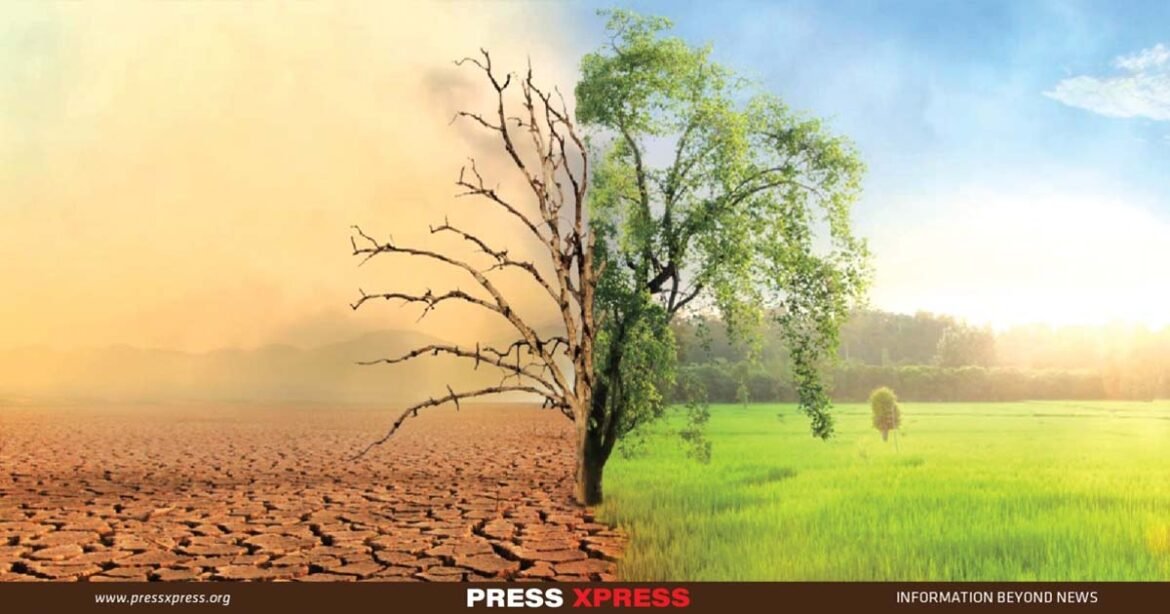Bangladesh stands prominently on the global map as one of the most climate-exposed nations, and this vulnerability is slated to intensify due to the effects of climate change. The country’s distinctive geography subjects it to recurrent natural calamities, encompassing floods, tropical cyclones, storm surges, and droughts.
These natural adversities result in loss of life, infrastructure damage, and detrimental effects on livelihoods. Furthermore, they force individuals and communities to abandon their homes and lands. The ramifications of climate change imply that the existing array of displacement-inducing natural events will escalate in both occurrence and severity in the years to come.
Bangladesh’s Growing Displacement Risk
In a 2017 study, agricultural economist GM Monirul Alam unveiled that Bangladesh, with its network of over 230 tidally active rivers and waterways, harbors a susceptibility to river-bank erosion that significantly affects 20 out of the nation’s 64 districts. Annually, a substantial expanse of 8,700 hectares of land succumbs to erosion, with river channels meandering by up to 300 meters, compelling the displacement of around 200,000 individuals.
You Can Also Read: UN REPORT REVEALS 76% OF SOUTH ASIAN CHILDREN BATTLING EXTREME HEAT
In 2018, a World Bank report projected that unless strategic measures are implemented to counter climate extremes, the number of people vulnerable to displacement within Bangladesh might soar to 13.3 million by 2050. Given the projected population of 220 million by that time, this scenario would translate to 6% of the population facing homelessness. Since gaining independence in 1972, disaster preparedness and relief have consistently ranked high on the Bangladeshi government’s agenda. The Ashrayan programme, initiated in 1997, aims to erect new residences for the homeless and landless populace.
By 2022, the programme had facilitated the resettlement of 507,244 families, incurring a total cost of $355.13 million (£297.98 million).
Germanwatch’s 2021 Global Climate Risk Index (CRI)
Despite contributing a mere 0.56% of global emissions responsible for climate change, Bangladesh has secured the seventh position on Germanwatch’s 2021 Global Climate Risk Index (CRI), a ranking of countries most susceptible to climate-related devastation.
The statistics underscore that between 2000 and 2019, Bangladesh endured staggering economic losses totaling $3.72 billion, alongside enduring 185 instances of extreme weather events attributable to the impacts of climate change. Situated to the east of India, adjacent to the Bay of Bengal, Bangladesh boasts an intricate network of waterways, including the renowned Ganges River. These watercourses offer fertile agricultural land, enable extensive boat-based travel, and facilitate connections to both South Asia and the wider world.
Additionally, the Sundarbans, the world’s largest continuous mangrove forest and a UNESCO World Heritage site, flourishes within Bangladesh. This unique ecosystem not only sustains local livelihoods but also nurtures remarkable biodiversity acknowledged globally.
However, this very geography renders Bangladesh exceedingly vulnerable to escalating:
- Sea levels
- Intensifying cyclones
- Floods and
- Other climate-induced challenges.
WHO’s statement
The World Health Organization (WHO) reported that the relentless impacts of climate change have led to the displacement of millions of Bangladeshis this year, resulting in the loss of homes and livelihoods. This unceasing internal migration, spurred by climate change, has left over 7.1 million people in Bangladesh displaced in 2022. Alarming projections indicate that this figure could surge to 13.3 million by 2050, with the WHO’s assessment encompassing a nation of approximately 168 million individuals.
Simultaneously, Bangladesh’s Foreign Ministry disclosed that climate change is exacting a toll equivalent to 1% of the country’s gross domestic product (GDP) annually. The looming threat of rising sea levels looms large, with estimates indicating that around 17% of the nation’s coastal lands could be submerged, forcing approximately 20 million people to relocate by 2050. Bangladesh’s standing as the seventh-most vulnerable country according to the Global Climate Risk Index 2020 further underscores the severity of the situation.
Highlighting the distressing context, the WHO emphasized that Bangladesh has witnessed three major influxes of forcibly displaced Myanmar nationals since 1978, comprising a total exceeding one million individuals. These populations possess distinctive medical requirements and are accommodated in Cox’s Bazar, home to one of the world’s largest and most densely populated camps.
As the WHO shared this information ahead of its annual Global School on Refugee and Migrant Health from November 28 to December 2 in Dhaka, it also drew attention to the pressing water crisis afflicting the country’s western and northern regions. The presence of harmful iron and arsenic in groundwater has created severe challenges in accessing potable water, and this issue compounds the predicament of numerous people who rely on the hundreds of rivers that crisscross the nation for their livelihoods.
The Bangladesh River and Delta Research Centre revealed a stark contrast: while the country boasted a total of 1,274 rivers in 1971 upon gaining independence, the intervening years have seen 507 of these waterways vanish.
Possible Solutions to Climate Displacement in Bangladesh
Amidst the sobering outlook for Bangladesh’s susceptibility to climate challenges and the ensuing displacement of millions due to climate change impacts, it is crucial to underscore the significance of rights-centered solutions. These solutions are not only necessary but also entirely feasible, and early achievements have already demonstrated their viability.
The majority of those displaced by climate factors within Bangladesh will experience internal displacement, rather than crossing international boundaries. Consequently, the primary duty of safeguarding the rights of climate-displaced individuals within Bangladesh rests with the government. All climate-displaced individuals are entitled to the full spectrum of human rights protections outlined in both the international agreements that Bangladesh is a party to, as well as the provisions enshrined in Bangladesh’s domestic laws.


